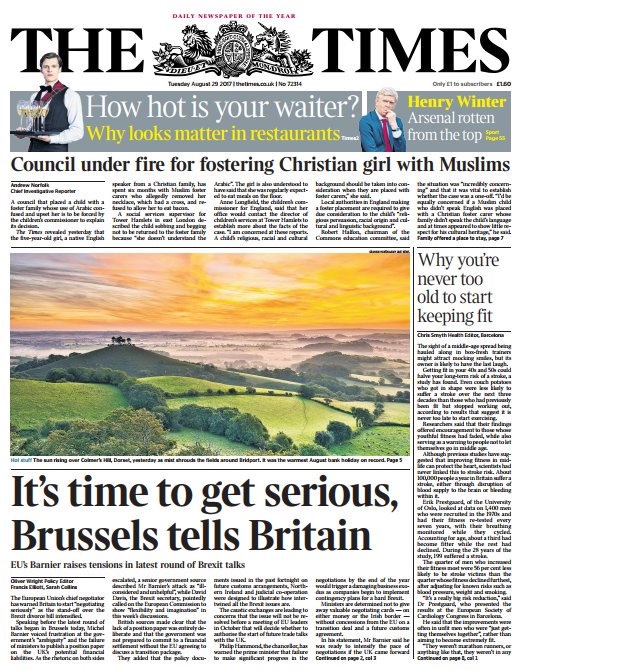
The Times had published an article on August 29, after getting access to confidential local authority reports, in which a social services supervisor describes the young girl crying and pleading to not return to her foster family where they “don’t speak English”.
Strategic project: Incubation centre to foster growth, says Anusha
The reports stated that the girl was “very distressed” and claimed that the foster carer had also taken away her necklace bearing a crucifix. It was reported that a “white Christian child” had been placed in a Muslim household in London since the past six months.
Tay Jiva, the adoption and fostering manager at Penny Appeal, found that the The Times report was exaggerated. Penny Appeal has worked with many care leavers who have claimed that their experience of living in culturally different homes left them with a confused sense of identity, making them wish for a closer connection to their faith and community. On the contrary, others said that the ethnicity and religion of their foster carers did not matter to them.
In either case, Jiva emphasises that it is unfair to allege that homes having a faith and culture different to the child are always abusive. Several non-Muslim carers provide loving and stable homes for Muslim children, just as many Muslim households provide a comfortable living to non-Muslim foster children.
From her own experience of dealing with Penny Appeal’s fostering applicants, she says that the carers are expected to take care of the children, take them to their preferred place of worship, or participate in celebrating their religious festivals. On failing to meet these criteria, the applicants are typically refused placements. Therefore, she finds that the claim made in The Times of a foster carer confiscating a religious symbol, making racist comments and being unable to speak the same language are highly unlikely. The Times did not follow established social services reporting procedures and published incorrect information.
Ban parents from pulling children out of religious education classes: church of England
Miqdaad Versi, the assistant secretary-general of the Muslim Council of Britain, which has made several national press corrections over reporting about Islam and Muslims, criticised The Times on Twitter, “Demonisation of the foreigner (especially the Muslim foreigner) is the clear undercurrent in this entire piece. It is appalling.”
It was also revealed the Daily Mail and Mail Online paired a modified image with the story after following up The Times report. The original picture of a couple in Islamic dress with a child was originally captioned “happiness couple in Dubai park” but was altered to cover the woman’s face with a veil.
The story about alleged abuse faced by the girl has gone viral, but there is no publicly disclosed evidence to suggest the foster placement was harmful. Jiva argues that the publication – and the critical comments following it – can prove to be more harmful. Careless reporting needs to be kept in check, particularly where vulnerable individuals are concerned.
This story originally appeared on the Guardian.


















COMMENTS
Comments are moderated and generally will be posted if they are on-topic and not abusive.
For more information, please see our Comments FAQ